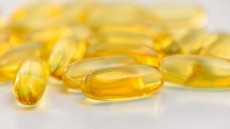GOED publishes guidelines for omega-3 oxidation control

Questions about oxidation of omega-3 oils have become headline grabbers over the past couple of years, with scientists in New Zealand reporting that only 9% of the fish oils in the NZ market met label claims for EPA (eicosapentaenoic acid) and DHA (docosahexaenoic acid), and 17% were below PV limits (a measure of oxidation).
In response, GOED commissioned tests of 47 fish oil supplements purchased at retail in New Zealand and found that 91% met EPA/DHA label claims, according to strict GOED standards, while most also met regulatory limits for oxidation.
The association has now produced a document designed to provide assistance in reducing the risk of oxidation of EPA/DHA-containing oils at different points along the value chain, from processing to finished products reaching the consumer. The nine-page document can be accessed HERE.
“Because oxidation can happen at any stage of handling an EPA/DHA-containing oil or finished product, these best-practice guidelines provide specific approaches on how to handle, store, and sample omega-3 products. Implementing these tactics can significantly improve product quality and reduce the risk that products reaching consumers are out of specifications for oxidation,” said GOED’s Gerard Bannenberg, Director of Compliance & Scientific Outreach and coordinator of GOED’s Technical Committee, which assisted in these guidelines.
The guidelines are meant to assist GOED members and the omega-3 industry as a whole but do not replace GOED’s Voluntary Monograph, which specifies the maximum limits of oxidation for the ingredients and products that fall within its scope.
Quality standards
The oxidation handbook is the third set of technical and analytical documents GOED has released. Another is the GOED Voluntary Monograph, which was developed in 2002 to serve as the industry definition of quality. The standard, to which GOED members are required to adhere, is the strictest in the world and helps ensure consumers have access to high quality products.
The third is the Technical Guidance Document (2015) to assist GOED members in choosing appropriate analytical test methods and working with various types of omega-3 oils.











